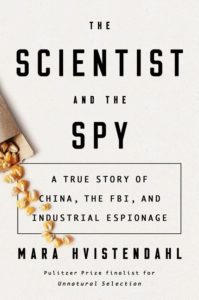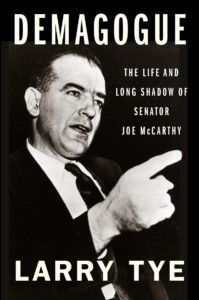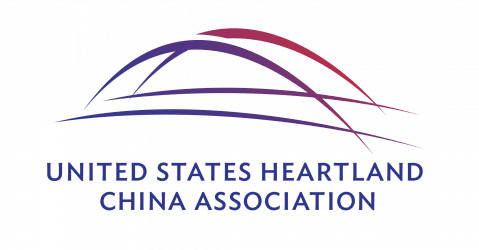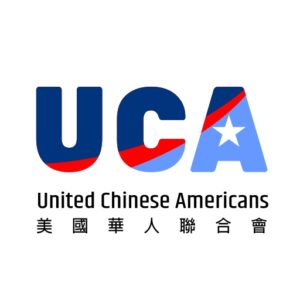History never repeats itself, but it rhymes. At this time of political divide in America and tension between the U.S. and China, many symbols of the Cold War era are coming to haunt us today. From the Justice Department’s much criticized China Initiative to the re-emergence of McCarthyism in America, there are alarming signs that, if we are not careful, our country may once again go down a troubling path, especially for Chinese Americans who are stuck in the middle.
What lessons can we learn from the past that can help us prevent a repeat of policies and rise of demagogues that will lead our country down a path of ruin? The US Heartland China Association and United Chinese Americans jointly invited two award-winning American authors to share their thoughts on this important topic.
Larry Tye, a New York Times bestselling author whose latest book, Demagogue: The Life and Long Shadow of Senator Joe McCarthy, applies a historian’s rigor to new materials that recently became available to uncover the making and unmaking of Senator Joe McCarthy, a ruthless and dangerous demagogue who was very skilled in manipulating the public. Tye cautions us that McCarthy’s tactics are still being used in American politics today with destructive consequences domestically as well internationally.
Mara Hvistendahl is an investigative reporter with The Intercept and the former China bureau chief for Science. Her latest book, The Scientist and The Spy: A True Story of China, the FBI, and Industrial Espionage, details a far-reaching FBI investigation involving a Chinese man accused of stealing genetically modified corn seed lines. Hvistendahl’s coverage of the documented pattern of “assuming people are guilty because of their ethnicity” within our society and our government is especially relevant today given the recent FBI admission of wrongful accusation of Professor Anming Hu (University of Tennessee – Knoxville) as a Chinese spy.
The authors called upon the audience to: “read and learn, be activists, and speak out on the things that matter.” They also emphasized the crucial role of independent journalism to uncover truth. For the many Chinese American attendees who actively engaged in the Q&A segment, the takeaway was clear: we must stay vigilant and call out the demagogues and their political rhetoric to prevent the victimization of Chinese Americans at this time of growing U.S.-China tensions.
Authors and Panelists

Mara Hvistendahl
The Scientist and The Spy: A True Story of China, the FBI, and Industrial Espionage
Mara Hvistendahl
Mara Hvistendahl is the former China bureau chief for Science an investigative reporter with The Intercept, where she has written several in-depth stories related to China Initiative. Her latest book, The Scientist and The Spy: A True Story of China, the FBI, and Industrial Espionage, details a far-reaching FBI investigation involving a man accused of stealing genetically modified corn seed lines from Monsanto.

Larry Tye
Demagogue: The Life and Long Shadow of Senator Joe McCarthy
Larry Tye
Larry Tye is a New York Times bestselling author whose latest book, Demagogue: The Life and Long Shadow of Senator Joe McCarthy, is two books in one – a biography of Wisconsin Senator Joe McCarthy, one of the most reviled figures in U.S. history, and a broader look at America’s long-standing love affair with bullies.
Moderator
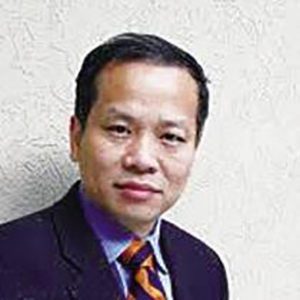
Haipei Shue
President UCA
Haipei Shue
Haipei Shue is the current President of UCA. He has served as a Chinese American community activist in Washington DC for decades. He played a leadership role in passing the Congressional “Chinese Students Protection Bill” in 1992 and advocated with American business community on China trade issues. In particular, Haipei was instrumental in the passage of the Congressional Apology Resolution on the Chinese Exclusion Act of 1882. In 2016 he started to mobilize Chinese American community to form United Chinese Americans (UCA) and organized the Inaugural Chinese American Convention in DC for community leaders, activists, and elected officials to set a common agenda and move the community forward. In addition, Haipei has worked as a commentator for Phoenix TV and was an advocate for environmental causes in China and beyond.
Opening and Closing Remarks
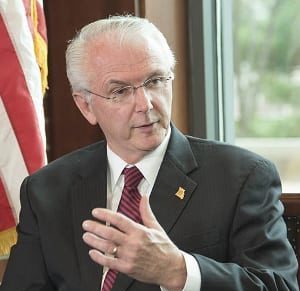
Gov. Bob Holden
Chairman and CEO USHCA
Gov. Bob Holden
Bob Holden served as Missouri’s 53rd Governor, 2001-2005. Prior to being elected Governor, Holden served two terms as Missouri State Treasurer and three terms as a Missouri State Representative.
Bob Holden has been in public service his entire adult life. In addition to holding elective office, Holden worked for State Treasurers James I. Spainhower and Mel Carnahan, United States Senator Thomas F. Eagleton, and Congressman Richard A. Gephardt.
During Governor Holden's term in office, he chaired the Midwest Governors Association; opened Missouri’s first trade office in China; created Missouri’s first Hispanic Outreach Committee; moved Missouri from 41st to 5th in terms of women in leadership positions; appointed over 200 African Americans to prominent leadership roles; established the state's first Youth Cabinet; and built the first LEED certified state office building in Missouri.
Bob Holden is currently the Missouri Co-Chair for the U.S. Global Leadership Coalition, and is an Executive Board member of the Missouri State NAACP Chapter. After leaving office in 2005, Holden founded the Holden Public Policy Forum and was a professor at Webster University for ten years. While at Webster University, he helped bring the first Confucius Institute to Webster University, St. Louis, Missouri.
For over 40 years, Bob Holden has been an active participant in the American Legion Missouri Boys and Girls State Program. He led efforts to bring the first delegations of Chinese students to be participants in this historic program. Since that first delegation to Missouri Boys and Girls State, he has lead the efforts to continue these student delegations of Chinese students to Missouri and Missouri students to China with plans to initiate delegations from other states.
Bob Holden believes that long term economic success for the United States and China must be built on mutual respect, clear understandings and honest dialogue. This can be achieved by expanding our cultural ties, creating more educational partnerships, and creating bridges of opportunities for successful business in both countries.


